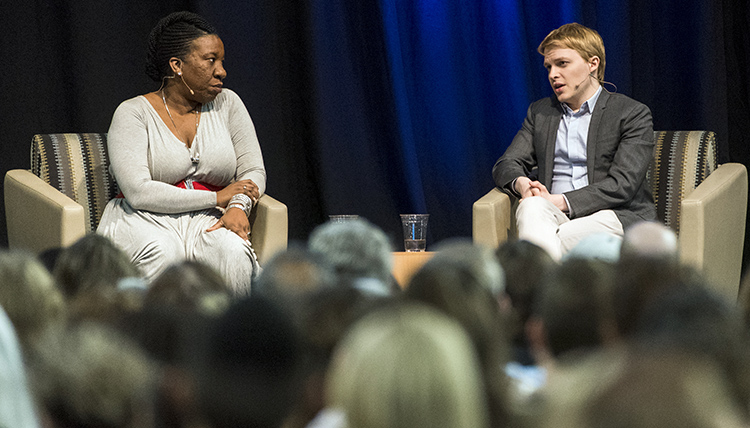About
Gonzaga’s Jesuit, Catholic, Humanistic education will challenge and inspire you.

New York social justice activist Tarana Burke, originator of the “MeToo” movement and among those recognized as Time magazine’s 2017 Person of the Year, and journalist Ronan Farrow, whose coverage of the multiple accusations of assault and harassment by Hollywood producer Harvey Weinstein helped earn The New Yorker a Pulitzer Prize, shared their perspectives on their work and the movement in April 2018.
The wave of reported incidents of sexual assault and misconduct that followed the Harvey Weinstein exposé – involving entertainment personalities, politicians, educators, and others – brought renewed attention and awareness to the widespread nature of this behavior. The movement demonstrated that sexual assault and harassment persist despite the life-changing effect that sexual assault and harassment have on individuals, and despite systematic efforts to raise awareness, educate and alter behavior across many environments.
Burke, Senior Director of Programs at Brooklyn-based Girls for Gender Equity, has dedicated more than 25 years of her life to social justice and to laying the groundwork for a movement that was initially created to help young women of color who survived sexual abuse and assault.
Ronan Farrow is an investigative journalist who writes for The New Yorker - which published his Harvey Weinstein stories following a 10-month investigation - and makes documentaries for HBO. He has been an anchor and reporter at MSNBC and NBC News, and his writing has appeared in publications including The Wall Street Journal and The Washington Post. He is the winner of a 2018 George Polk Award, and has been nominated for the National Magazine Award, among other commendations. A Yale Law School educated attorney and a member of the New York Bar, he attended Oxford University as a Rhodes Scholar. He is also a former State Department official who worked in Afghanistan, Pakistan, and the Middle East. His latest book is titled "War on Peace: The End of Diplomacy and the Decline of the American Influence."